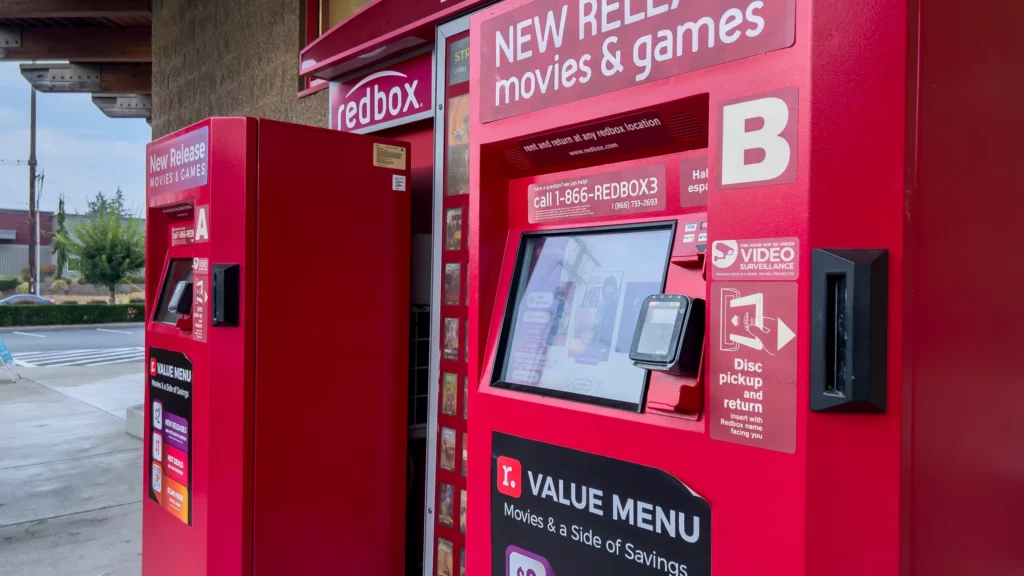Chapter 11 bankruptcy protection has been filed by Chicken Soup for the Soul Entertainment, which purchased Redbox, a movie rental firm, in 2022. Recent filings with the Securities and Exchange Commission (SEC) by the corporation revealed net losses of $636.6 million for 2023. A week without a paycheck for staff members was caused by Chicken Soup for the Soul Entertainment’s nonpayment of payroll and suspension of medical insurance, according to a report by Deadline. In an effort to address the situation, the company applied for a debtor-in-possession loan.
In a message to employees, Chicken Soup for the Soul Entertainment stated that it had applied for the loan to ensure that payroll would be funded early in the week and that funding for the upcoming week’s payroll would also be secured. The company also expressed its expectation to have the funds to reinstate medical benefits retroactively to May 14, 2024, and going forward. The acquisition of Redbox for $375 million significantly contributed to the company’s debt, and according to The Verge, Chicken Soup for the Soul Entertainment owes money to a variety of creditors, including major retailers, studios, and streaming platforms such as Walmart, Universal, and Sony.
The total debts of Chicken Soup for the Soul Entertainment amount to approximately $970 million. In addition to Redbox, the company owns the streaming service Crackle and a few other film and TV brands. Despite being best known for its long-running self-help books, Chicken Soup for the Soul Entertainment has expanded into various media ventures, which have now led to significant financial challenges.
The Chapter 11 bankruptcy filing allows the company to restructure its debts and attempt to regain financial stability while continuing operations. The decision to file for bankruptcy protection reflects the severe financial difficulties the company faces and its efforts to manage its debts and obligations to creditors. The suspension of medical benefits and missed payroll underscore the immediate impact of these financial challenges on employees, adding urgency to the company’s efforts to secure funding and stabilize its operations.
The acquisition of Redbox, intended to expand Chicken Soup for the Soul Entertainment’s footprint in the entertainment industry, brought substantial debt that has contributed to the current financial crisis. The company’s SEC filing highlights the significant net losses for 2023, indicating that the financial performance did not meet expectations and exacerbating the debt burden from the Redbox acquisition. This situation has resulted in strained relationships with various creditors, including prominent industry players like Walmart, Universal, and Sony.
The application for a debtor-in-possession loan is a critical step in the bankruptcy process, allowing Chicken Soup for the Soul Entertainment to obtain the necessary funds to continue operations during the restructuring period. This loan is intended to cover immediate needs such as payroll and reinstating medical benefits, providing some relief to employees affected by the recent disruptions. The company’s communication to employees reflects its commitment to addressing these issues and securing the funds required to maintain operations and support its workforce.
The broader implications of this bankruptcy filing extend to the entertainment industry, where Chicken Soup for the Soul Entertainment’s financial troubles highlight the risks and challenges associated with acquisitions and debt management. The company’s expansion into streaming services and other media ventures illustrates the competitive and rapidly evolving nature of the industry, where financial stability can be difficult to maintain. The outcome of the bankruptcy proceedings will have significant implications for the company’s future, its employees, and its creditors, as it seeks to navigate this challenging period and emerge with a more sustainable financial structure.
Chicken Soup for the Soul Entertainment’s Chapter 11 bankruptcy filing comes at a crucial time for the business as it works to manage its massive debt load and deal with serious financial difficulties. Though intended to broaden the company’s market penetration in the entertainment sector, the acquisition of Redbox has added to its present financial woes. The company’s dedication to stabilizing its operations and providing support to its employees during this restructuring process is evident in its application for a debtor-in-possession loan and its efforts to acquire funds for medical benefits and payroll. Stakeholders in the entertainment sector will be keenly monitoring the results of these measures as the company attempts to resolve its financial issues and forge a more sustainable future.
If you like the article please follow on THE UBJ.
